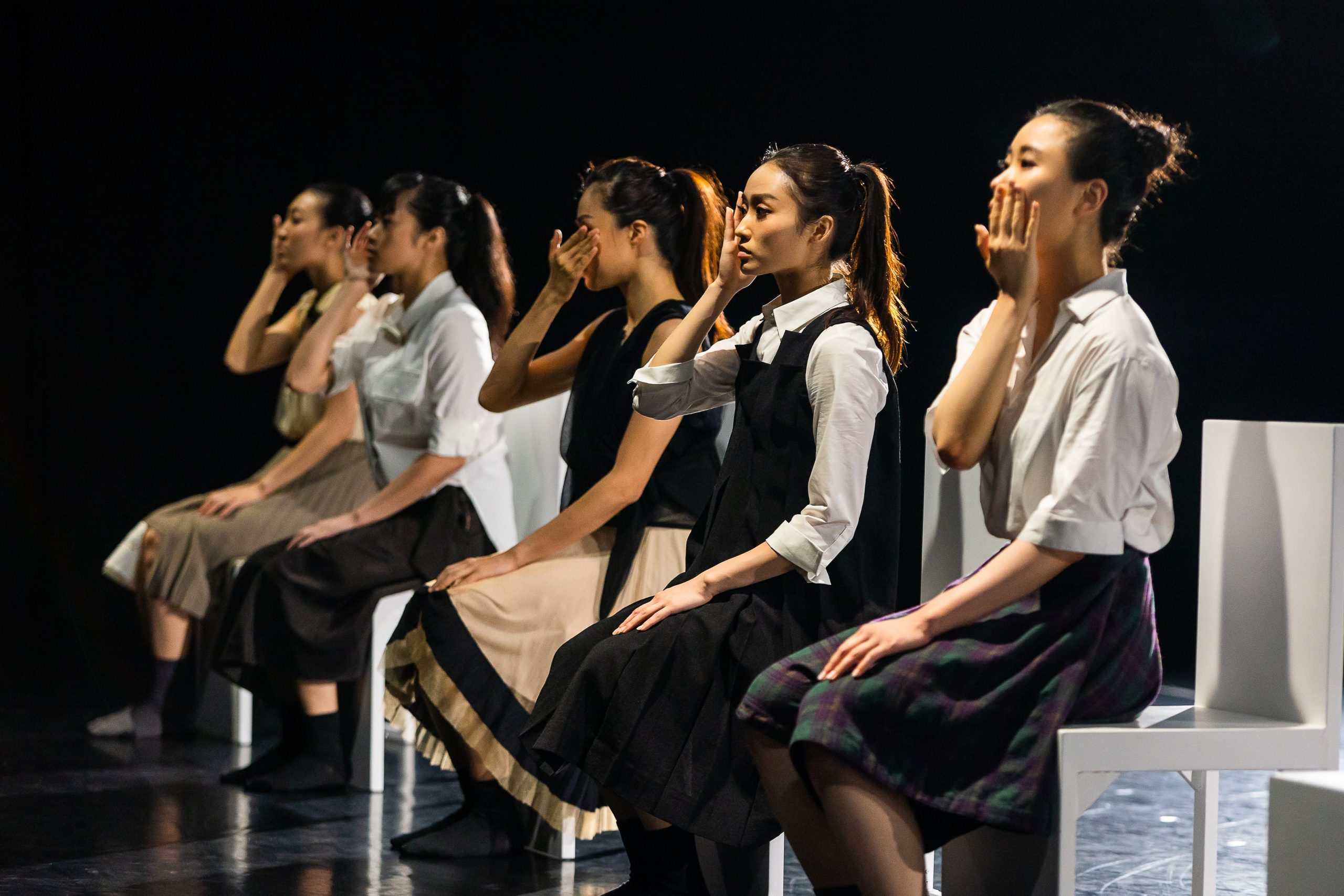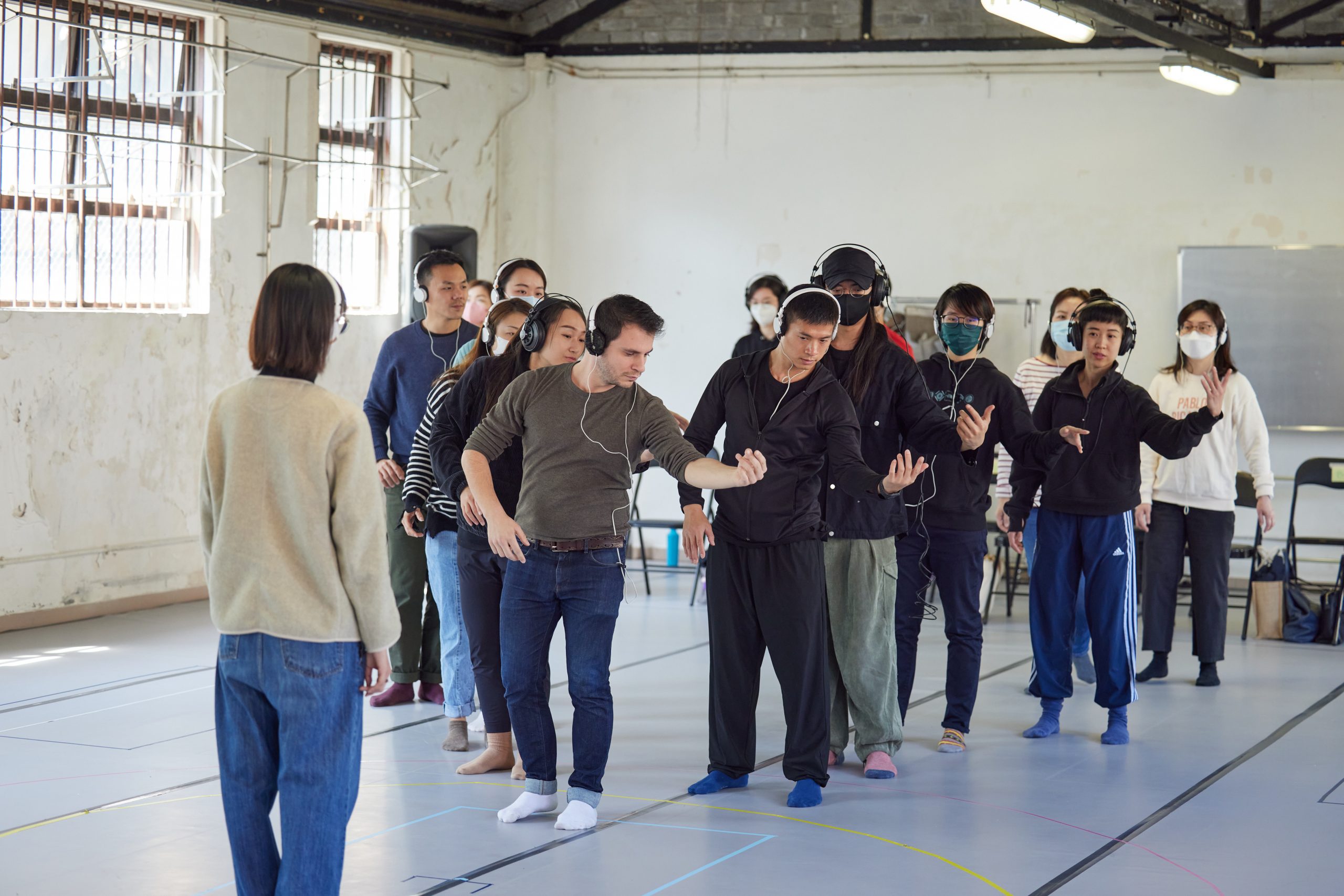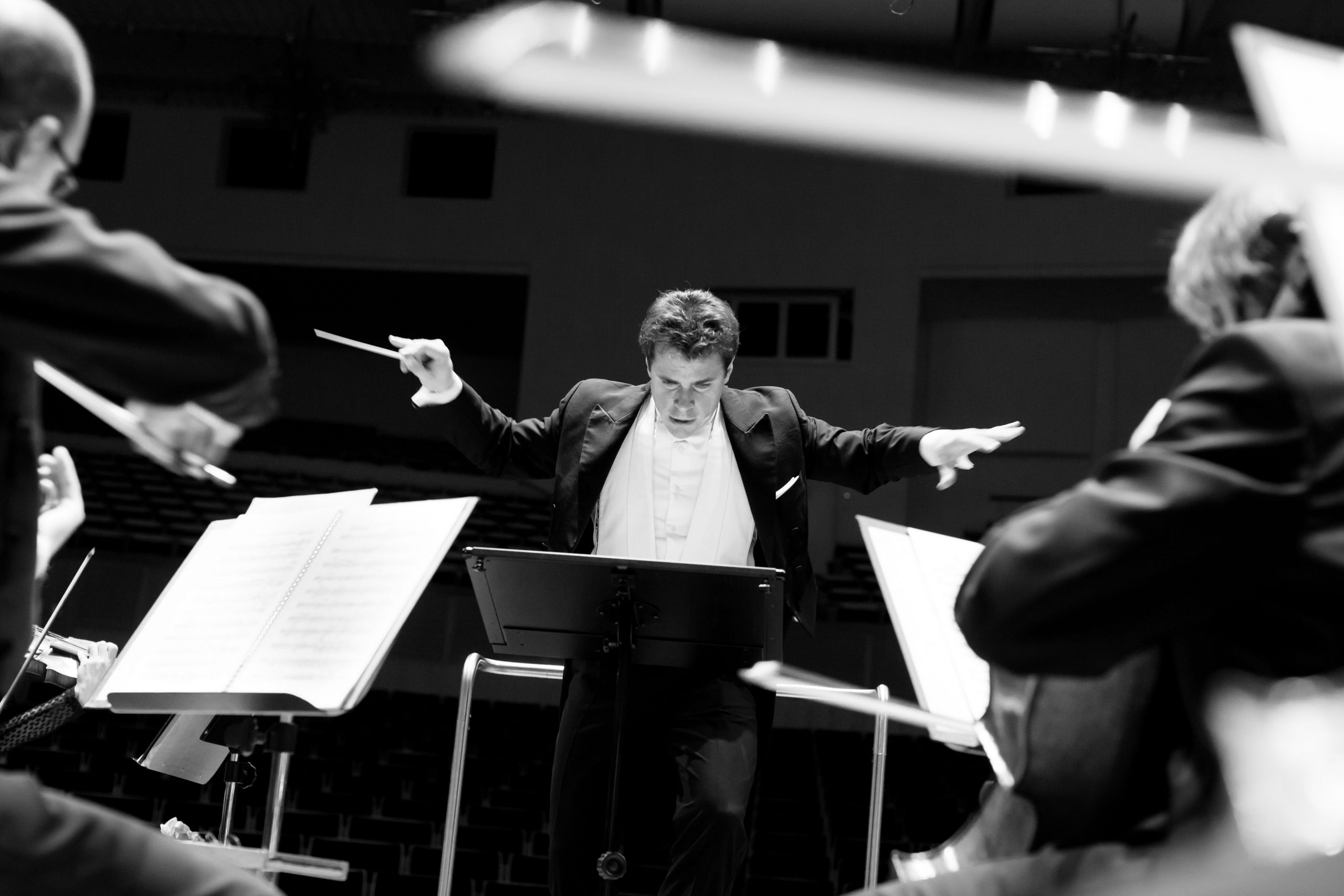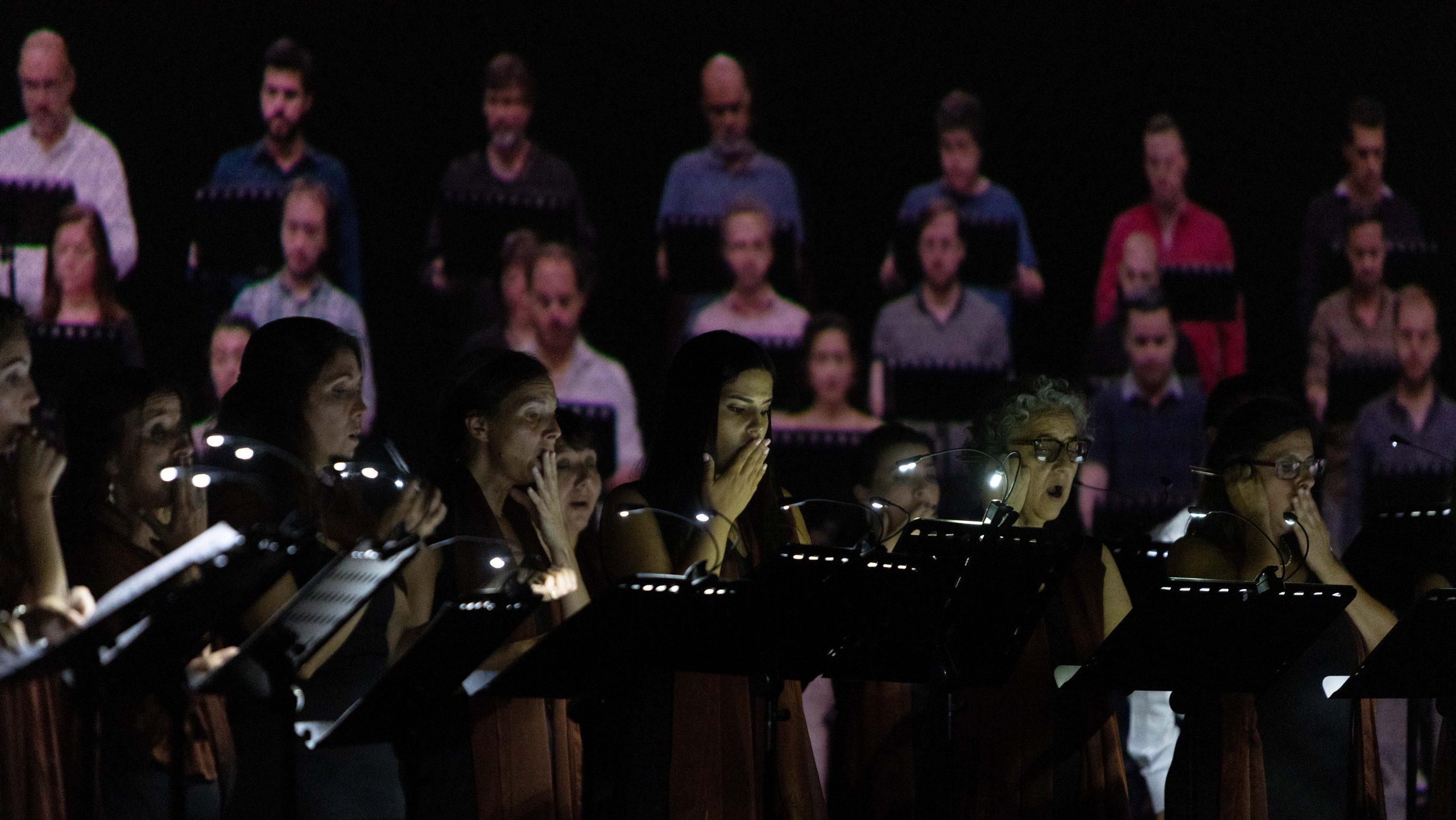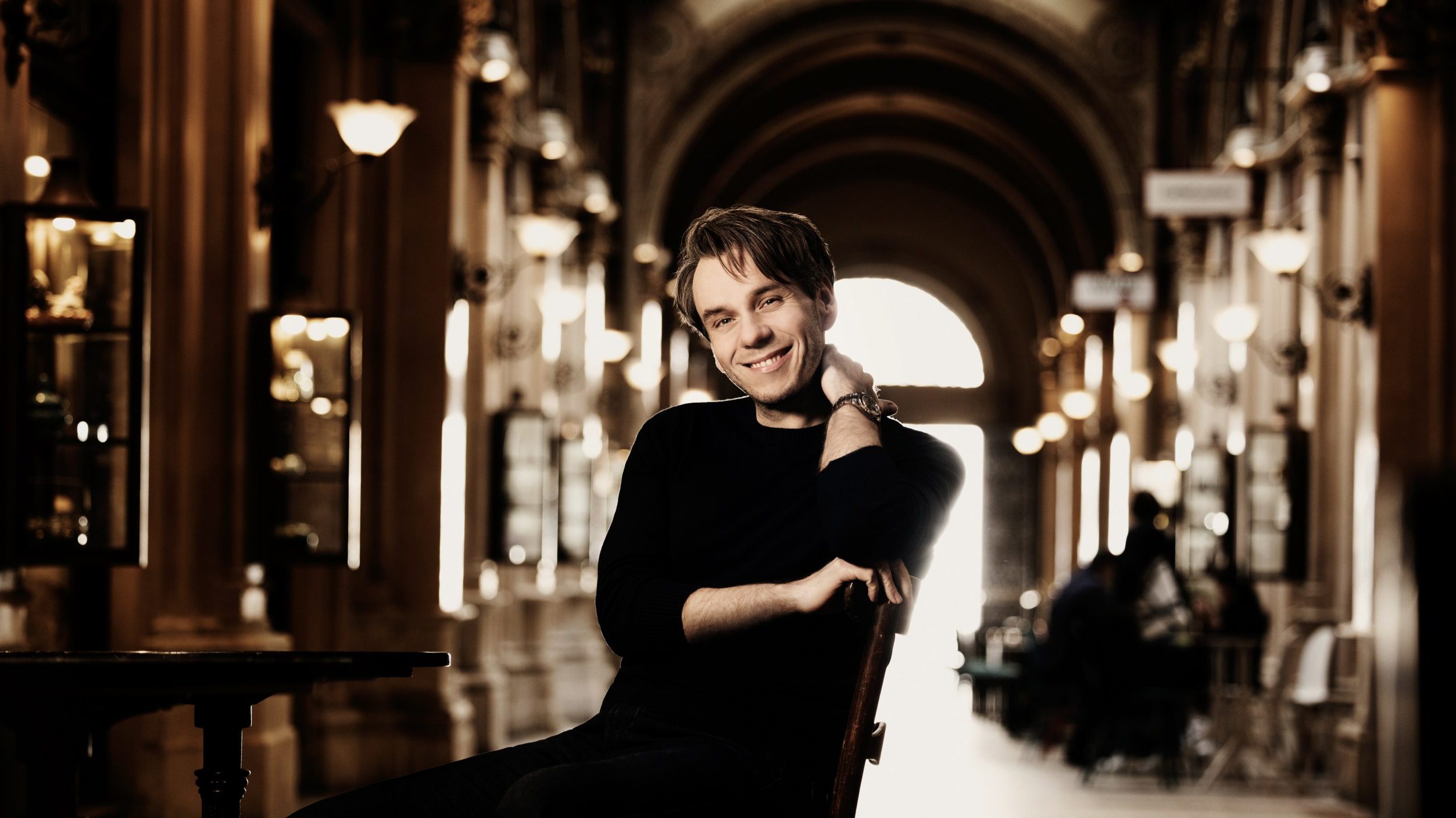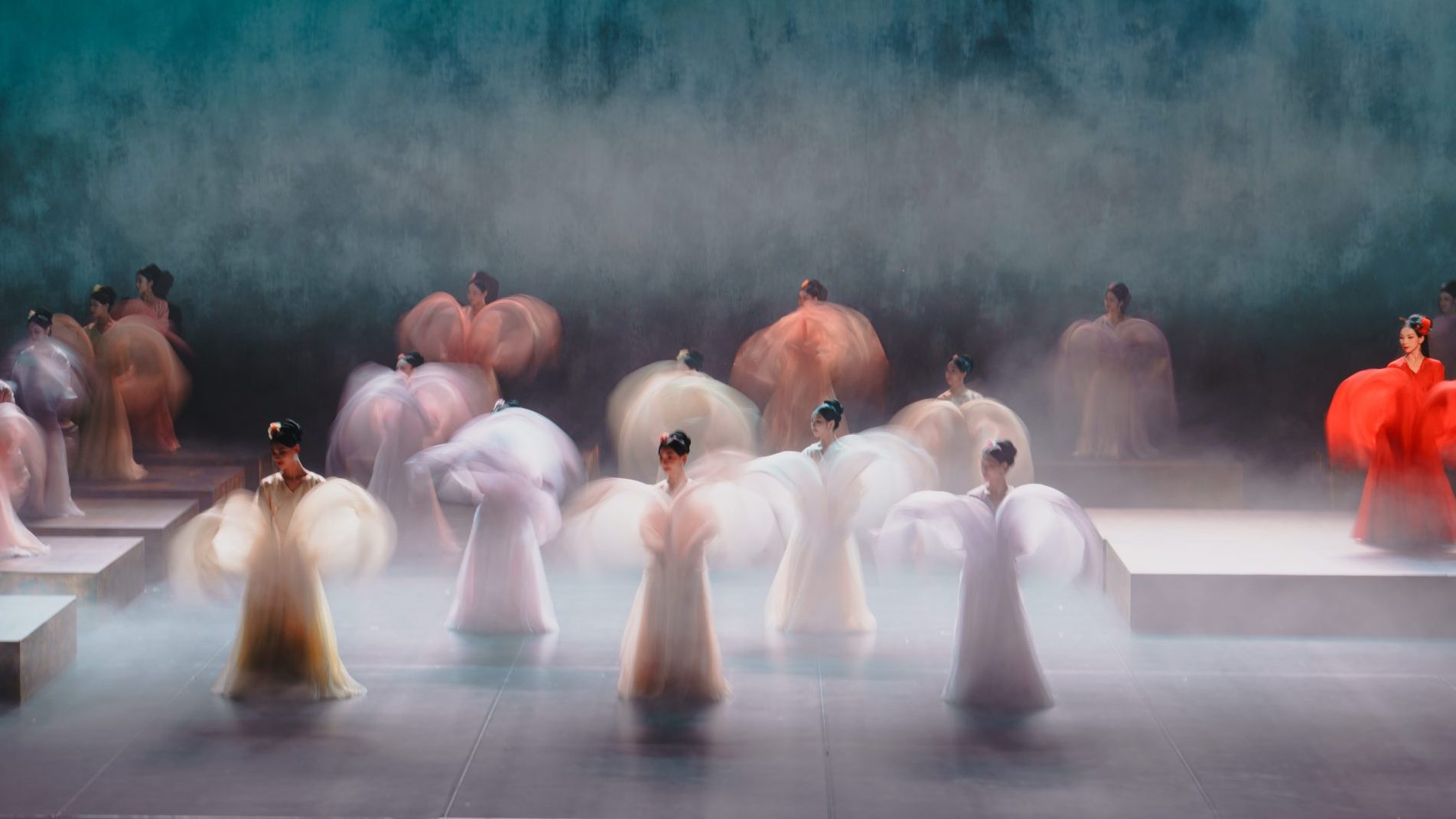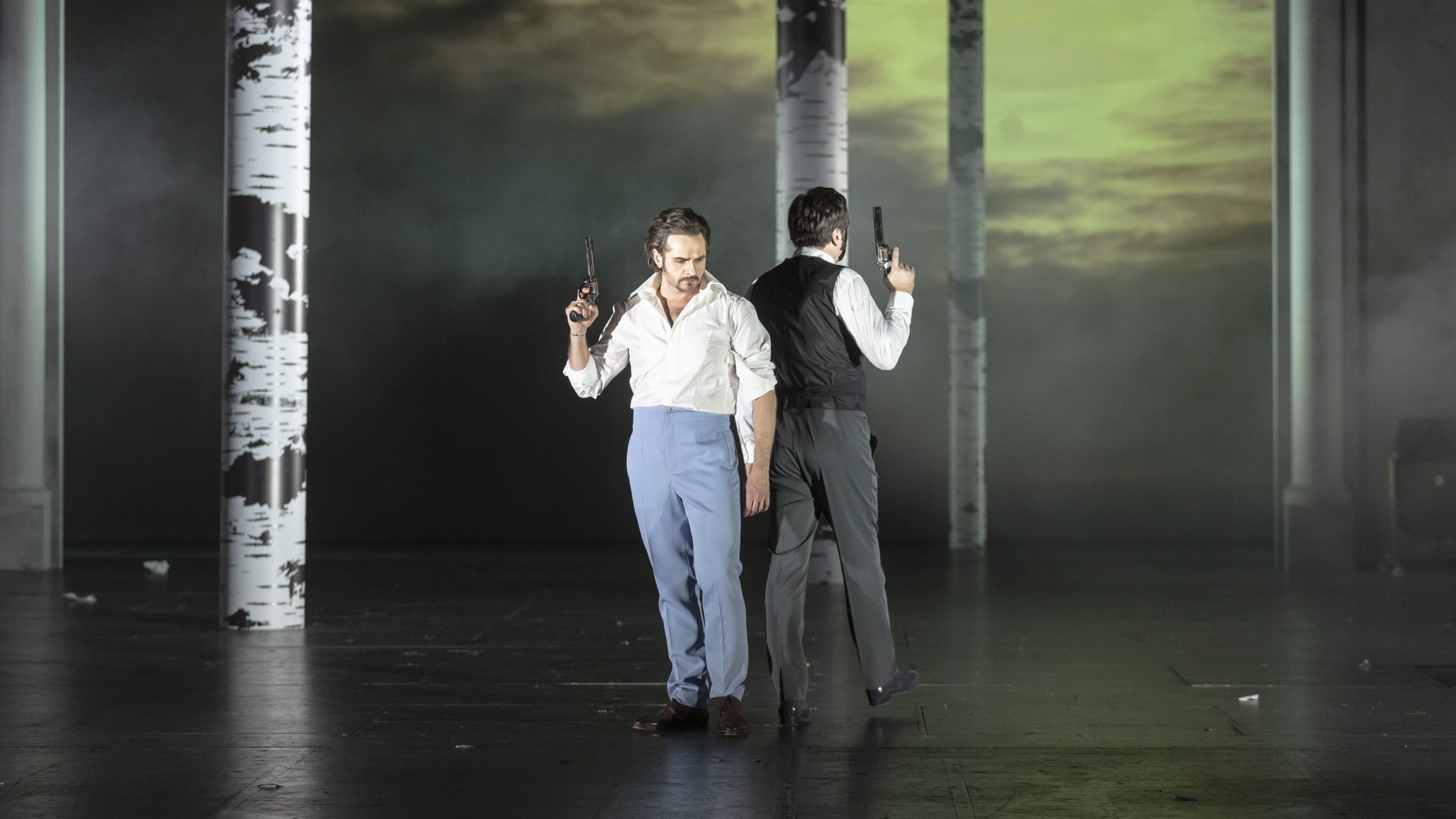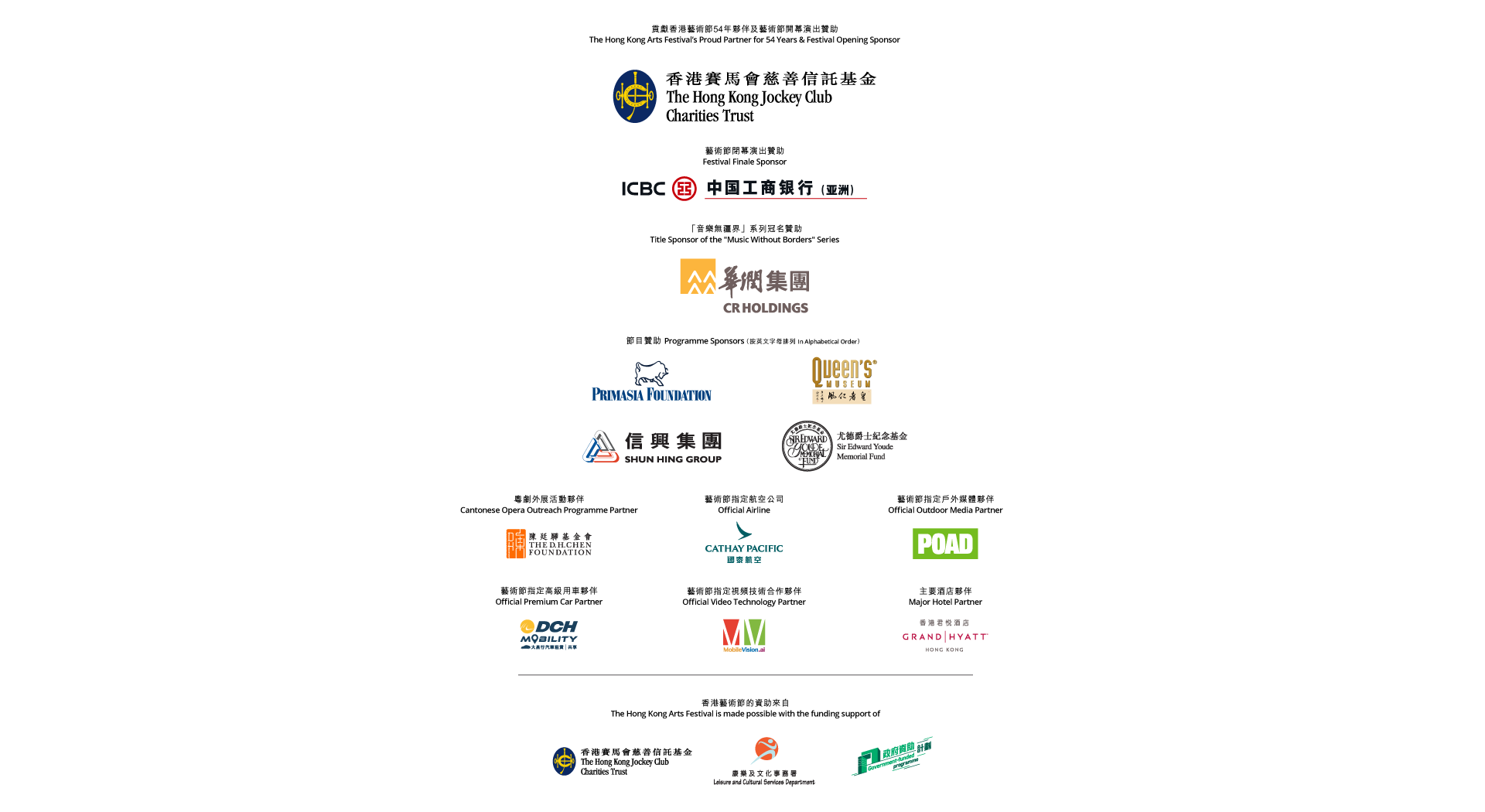Yang Yuntao, artistic director of the Hong Kong Dance Company, was surprised when the Hong Kong Arts Festival invited him to direct and choreograph the dance-opera Love Streams, merging two previously staged chamber operas, Heart of Coral (2013) and Women Like Us (2021). This is because he and his dance company had rarely collaborated with the Arts Festival in the past, but after some thought the reason for the invitation became obvious. "The Hong Kong Dance Company embraces everything. Whether it's folk, ballet, modern and so on, our choreographers and dancers are navigators of uncharted waters. Heart of Coral is quintessentially a Chinese woman's story, while Xi Xi's contemporary works speak vividly to our times. I totally see the common thread between the literature and our work."
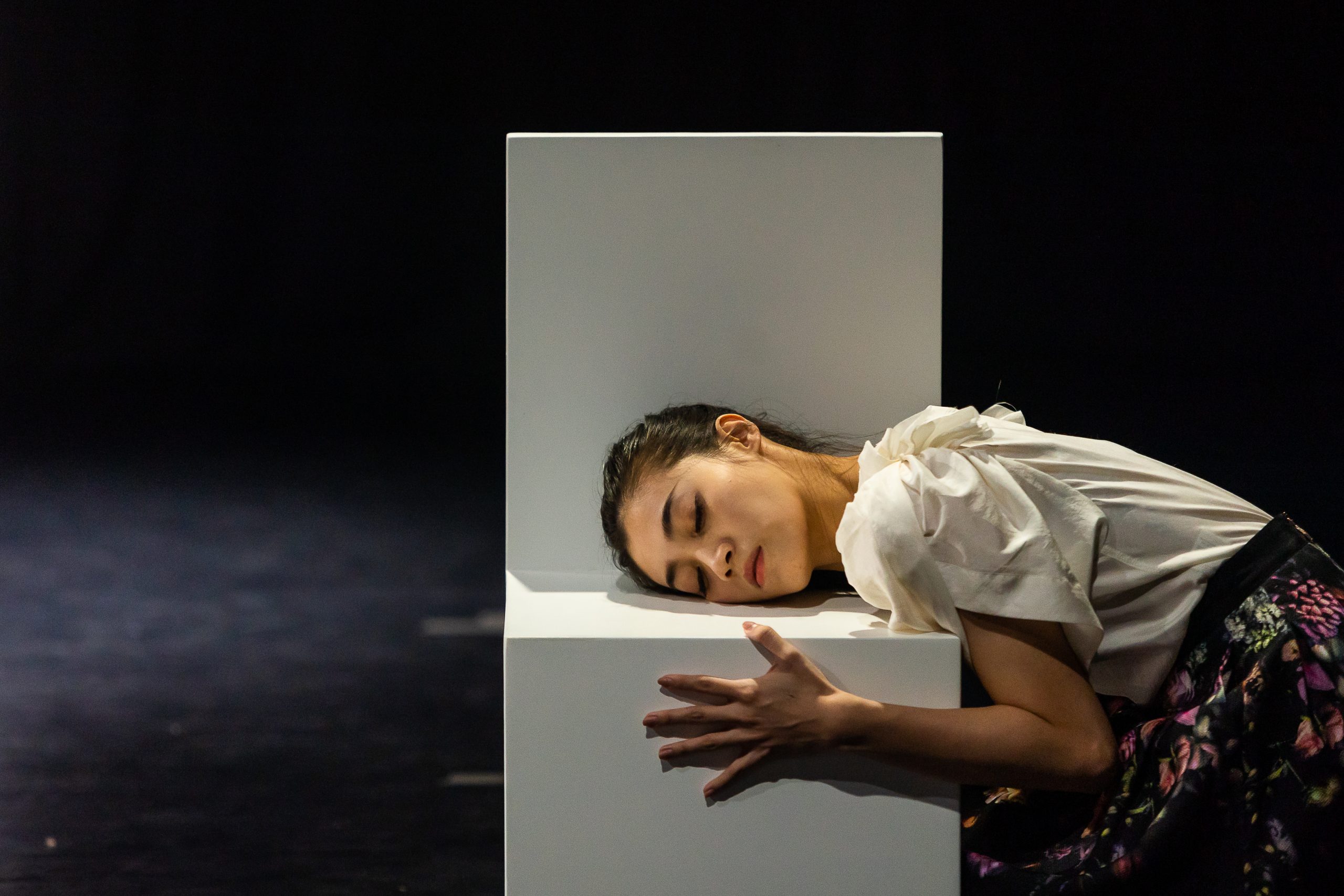
A woman's story told through music
But as an original dance opera, Love Streams may pose something of a challenge for Yang, who is new to this combined art form. Still, he came equipped with much relevant experience, having choreographed for opera and incorporated operatic music into dance in the past. Yang also notes that famed German choreographer/ dancer Pina Bausch also regularly fused opera and dance. And Yang is no stranger to hybrid performances. As a choreographer, Yang believes that music is the foundation of everything—the story, the visual imagery of the opera, and the soul of the dance. "In Love Streams, dancers use their bodies, moods and situations to convey the music." Yang imagines himself working with the composer in the same studio: "The composer weaves a maze through music; I decode it with dance."
Yang is not a loyal reader of Xiao Hong and Xi Xi, but is not totally unfamiliar with their work either. Having comprehensively studied Xi Xi's short stories "A Girl Like Me" and "The Cold", which inspired the opera Women Like Us, Yang says: "You must equip yourself with your personal experience as you journey through the story, otherwise the powerful pen of Xi Xi will go unnoticed. She had the magical ability to transform a mundane, humdrum existence into something extraordinary." Compared to Xiao Hong, Yang feels closer to Xi Xi. "Both of us were living in the same city at the same time." The male choreographer has always been interested in working with material related to women. "When you try to observe the world from a woman's perspective, you become more sensitive. The level of fantasy, potential to break the rules, and the degree of openness become very obvious. Things simply become much more interesting. Men habitually chase power, fame and money, which seems very realistic, yet very unrealistic."
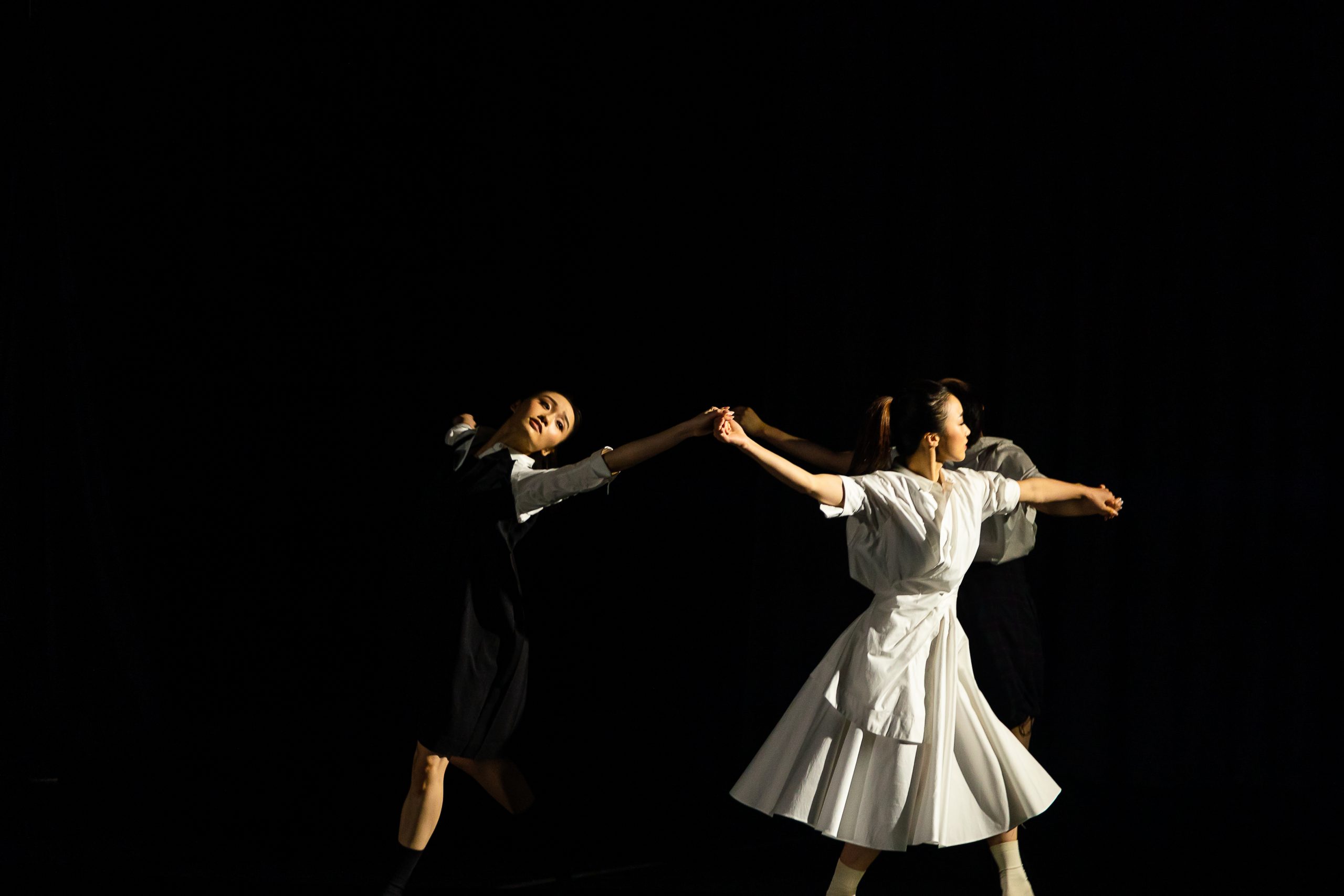
Yang has seen the live opera Heart of Coral and has a deep understanding of the work. "Xiao Hong is like a profoundly delicate flower that was born in the bitterest winter, but sprouted from the roughest soil and blossomed into something splendid. It is hard to say if the world she was born into was good or bad, but her immense talent flourished even more brightly against this adversity. Without this, such a noble soul might not have been able to connect generations of readers." He describes the music of composer Chan Hing-yan as imposing, sometimes vigorous, sometimes mellow, "a magnificent assemblage of modern music and traditional instruments". Since the performance is based on the grand narrative of history, Yang prefers to shift the focus from narration to ambience, to "let the dance breathe in a larger space and elevated mood". After a discussion with Chan, the composer decided to cut the dialogue and present the story through music.
Yang is more cautious about Women Like Us than Heart of Coral. To further his thoughts, Yang also consulted composer Daniel Lo and librettist Wong Yi. He says the scenes in Women Like Us may involve trivial, everyday situations, but the musical style is contrastingly surging and commanding. "A scene with casual chatting may seem calm, but the underlying emotions are stirring." In response to the lofty ambience of the music, Yang's choreography is striking, delivered through bold movements, positions and spatial modulation, as a reflection of the complex inner world of the protagonist. "The clash between the writer's turbulent mind and unimpressive reality is huge." Meanwhile, the characters and plot in Women Like Us are realistically depicted in the novel, but the stage version is full of imagination. "We are always like this—we say one thing and do another, even think another. And I'm putting the choice to 'think' on stage. For example, a lyric says 'I miss you'. 'How? Do you miss me as strong as a crushing wave, or as subtle as a steady stream?' My answer will be delivered through body movements."
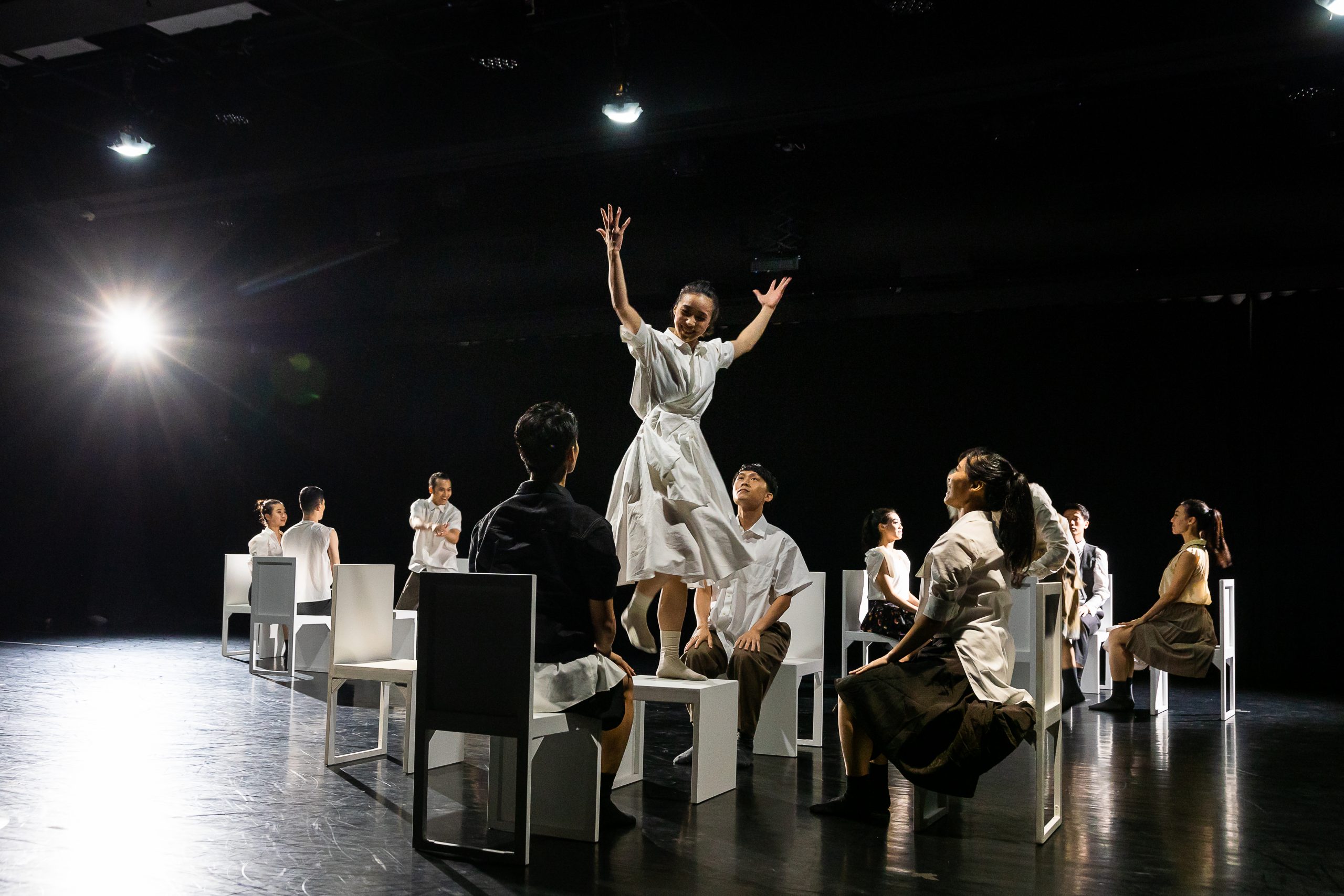
Surprisingly for the choreographer of the entire work, Yang emphasises music over dance as the focal point of the dance opera. "It is not a binary opposition for one to serve the other. Things can exist mutually, and adorn and fulfill each other, perfecting a story that has been intricately woven together."
Dance-Opera–Love Streams
Detail: https://www.hk.artsfestival.org/en/programme/lovestreams


